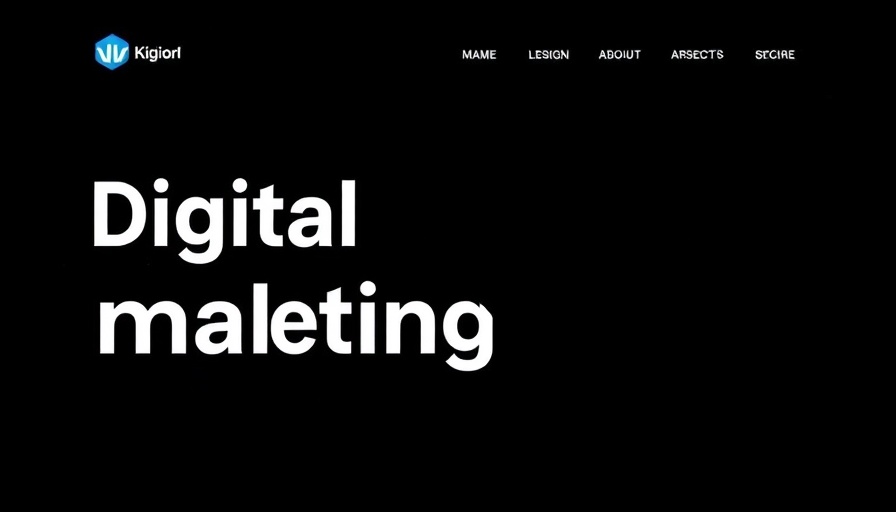
Unlocking Digital Marketing Success Through Effective Attribution Tools
In today's fast-paced digital marketing landscape, understanding how each marketing touchpoint influences a customer's journey is crucial. Attribution tools have emerged as essential instruments for professionals, business owners, and marketers aiming to optimize their campaigns and improve return on investment (ROI). These tools help unveil the paths customers take, ensuring brands can allocate their resources effectively and maximize conversions.
What Are Attribution Models?
Before diving into specific tools, it’s vital to understand attribution models. These frameworks illustrate the value of every touchpoint in a customer's journey, allowing marketers to assess the effectiveness of their various marketing channels. From simple models like first-click and last-click to more complex options such as linear or time-decay models, choosing the right approach is essential for comprehensive analysis.
1. Google Analytics: The Industry Standard
Google Analytics remains a go-to tool for digital marketers. Not only does it provide a wealth of insights about website performance, but its attribution capabilities also allow users to assess the contribution of different marketing channels. Through the Multi-Channel Funnels report, marketers can visualize the complete customer journey and determine which channels worked best at driving conversions.
2. HubSpot: Seamless Integration for Inbound Marketing
HubSpot is a leading platform in inbound marketing that offers robust attribution tracking. Its unique attribution techniques provide marketers with an understanding of which marketing strategies are producing the most leads and customers. Users love its intuitive features that facilitate the analysis of customer interactions across multiple channels and touchpoints, ensuring a holistic view of their marketing efforts.
3. Convertro: Advanced Attribution Analysis
Convertro specializes in advanced attribution analytics. This tool allows businesses to track customer interactions across diverse platforms and assist in budget allocation. Its intelligent algorithms analyze real-time data, providing insights that help improve long-term marketing strategies.
4. Attribution: Visualizing the Customer Journey
The aptly named Attribution tool focuses on creating a visual representation of customer journeys. By identifying critical points along the path to conversion, marketers can adjust their tactics accordingly. Such visualizations help in understanding user behavior and refining marketing strategies effectively.
5. C3 Metrics: Precision and Flexibility
C3 Metrics offers incredibly precise multi-touch attribution models that marketers can customize to their needs. This flexibility allows companies to adapt their attribution methods as their marketing strategies evolve, ensuring ongoing effectiveness.
6. Adobe Analytics: The Power of Integration
For organizations heavily invested in digital experiences, Adobe Analytics provides a powerful suite of tools focused on customer insights and attribution. With its ability to integrate seamlessly into various platforms, Adobe Analytics empowers businesses to harness data for improved decision-making across marketing campaigns.
7. Funnel.io: Streamlining Data Integration
Funnel.io excels in collecting and consolidating data from multiple digital channels. Marketers can connect their different tools and view comprehensive attribution insights in one place, making it easier to analyze performance and adjust strategies as needed.
Why Attribution Tools Matter for Every Marketer
The importance of utilizing effective attribution tools cannot be overstated. With continuous fluctuations in digital marketing strategies and consumer behavior, having the right insights allows marketers to stay ahead of trends, optimizing campaigns for better engagement and conversion rates. Tools like these not only enhance understanding but also foster data-driven marketing that leads to measurable results.
Future Trends and Predictions for Attribution Tools
As digital marketing continues to evolve, so will attribution nuances. Future tools are likely to leverage artificial intelligence and machine learning for even more accurate data analysis and predictions. Marketers can expect innovative solutions that enhance personalization and provide deeper insights into customer behaviors, contributing to more targeted marketing efforts.
Actionable Insights to Get Started
To ensure that your marketing efforts yield the best results, start implementing an attribution tool that suits your business model. Explore the tools mentioned above to identify which aligns with your strategic goals. Build a culture of data-driven decisions within your marketing team, leveraging the insights these tools offer for ongoing refinements and optimization.
Investing in attribution tools is an investment in understanding your customers and enhancing the effectiveness of your digital marketing strategy. Equip yourself with the right data, and witness the transformation that comes with informed decision-making.
 Add Row
Add Row  Add
Add 




Write A Comment